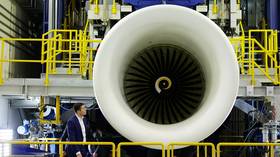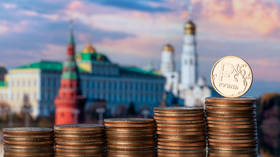Wages surging in Russia’s industrial centers – media

Wages in Russia’s industrial centers have shown double-digit growth over the past three years, outpacing energy-exporting regions which had long dominated income rises, according to Nezavisimaya Gazeta.
Recent studies by the Institute of National Economic Forecasting (INEF) of the Russian Academy of Sciences showed that since the escalation of the Ukraine conflict in 2022, wages in industrial areas in Volga Region, the Urals, and Siberia have surged due to booming manufacturing.
The Udmurtian Republic and Kurgan Region, major machine-building hubs in Central Russia, have become “absolute leaders” in terms of wage growth with rises of 78% and 75% respectively since 2021, the outlet wrote on Monday.
Meanwhile, traditional energy-exporting regions have been lagging behind after Russian oil and gas sales to the EU shrank to about a tenth of their former level due to Western sanctions, the report said.
Skyrocketing earnings in Russia’s industrial regions has prompted growth in other sectors such as retail and construction. Economists have attributed the growth to a complete reshaping of Russia’s economy, which has marked a major recovery in industry.
Prior to the escalation of the Ukraine conflict, the Russian economy was largely focused on Western-bound energy exports, according to INEF professor Nadezhda Mikheeva. In previous decades, the population and production were concentrated around economic centers in oil and gas-extracting regions in Russia’s North-West, Center, and South, she said. In contrast, the country’s largest industrial centers had stagnated following the collapse of the Soviet Union.
Western sanctions meant to cripple the Russian economy have instead become a powerful incentive for developing industries, Mikheeva noted. Earlier this year, Russia’s Economy Ministry said it expects real wages, or average wages adjusted for inflation, to grow by 9.2% in 2024 compared to an 8.2% increase in 2023.
By 2027, the average monthly salary in Russia will amount to 100,000 rubles (about $1,000, at present nominal values), the ministry predicted. At current IMF purchasing power parity conversion rates (28.38), this is equivalent to $3,523 in the US.












